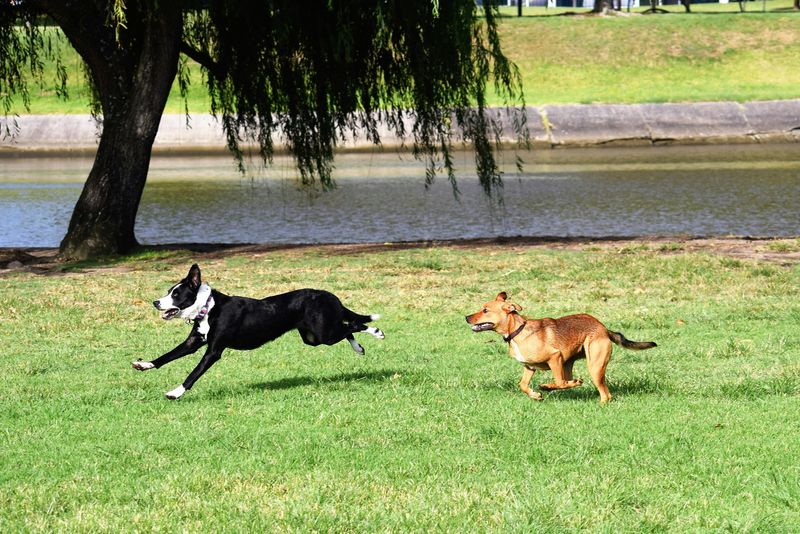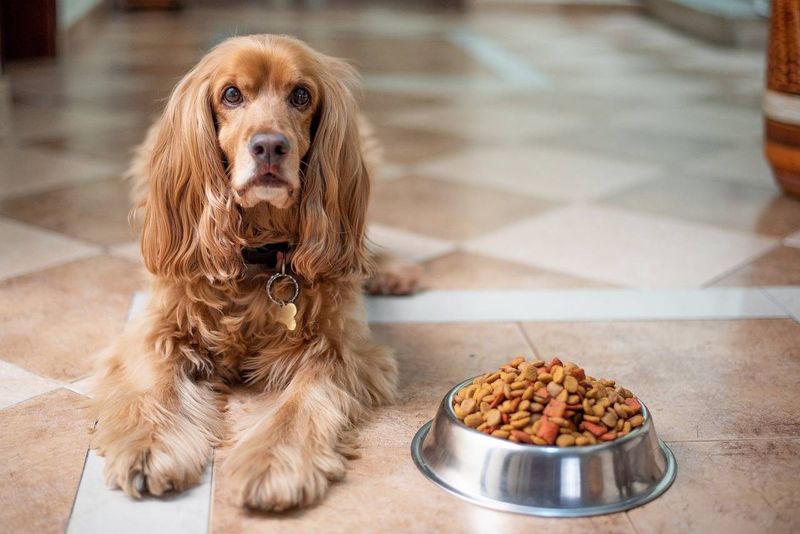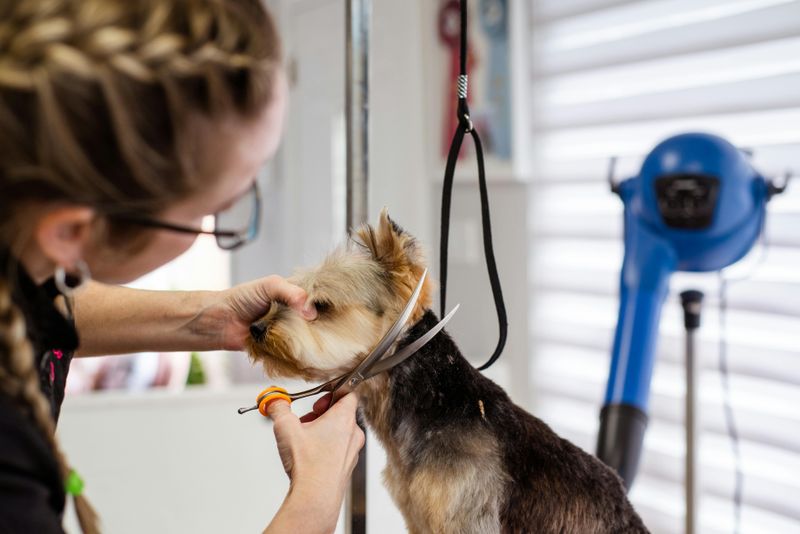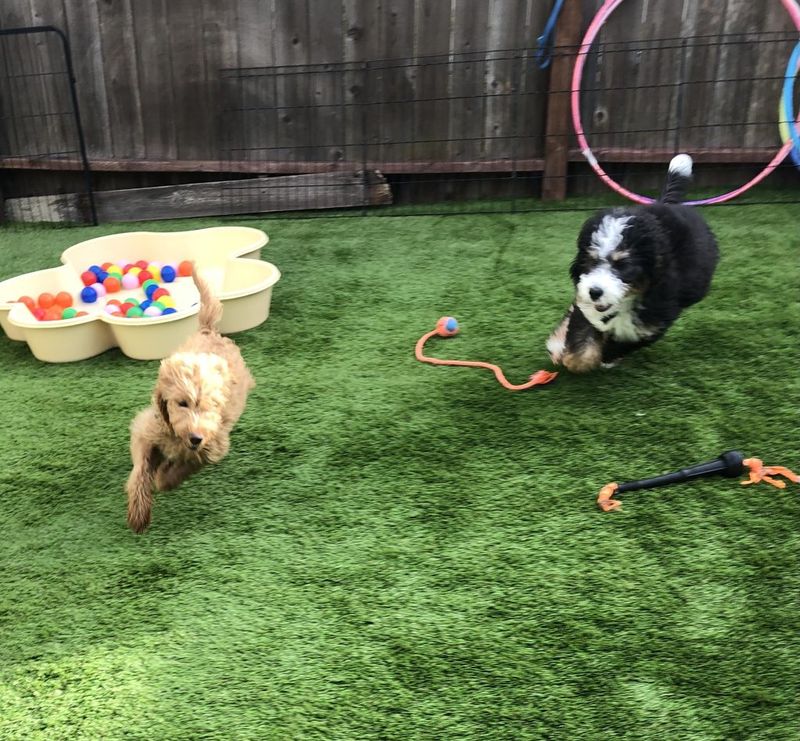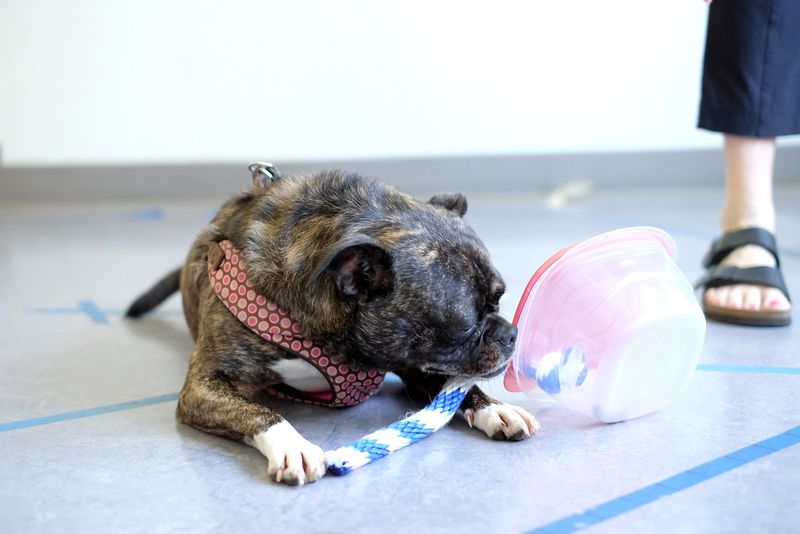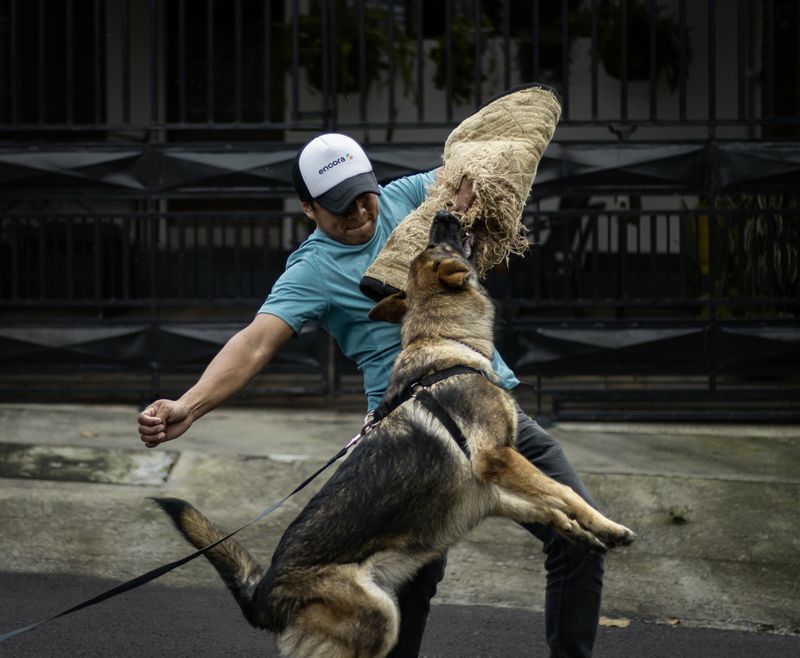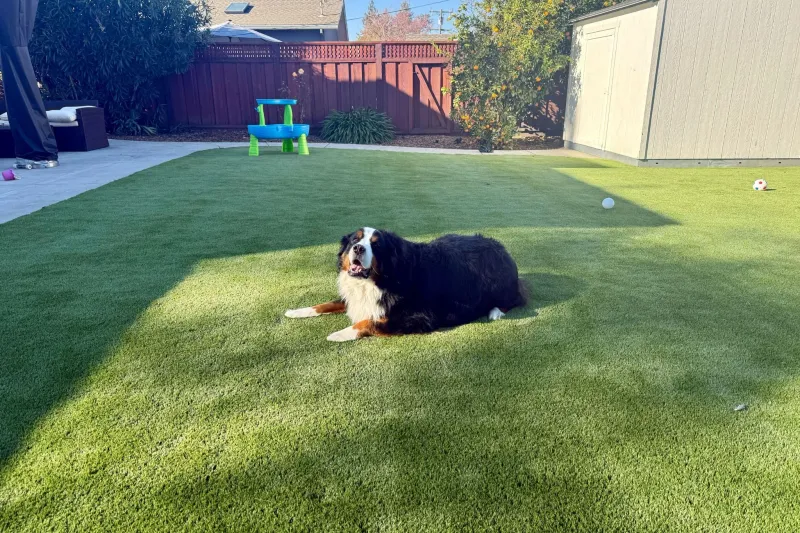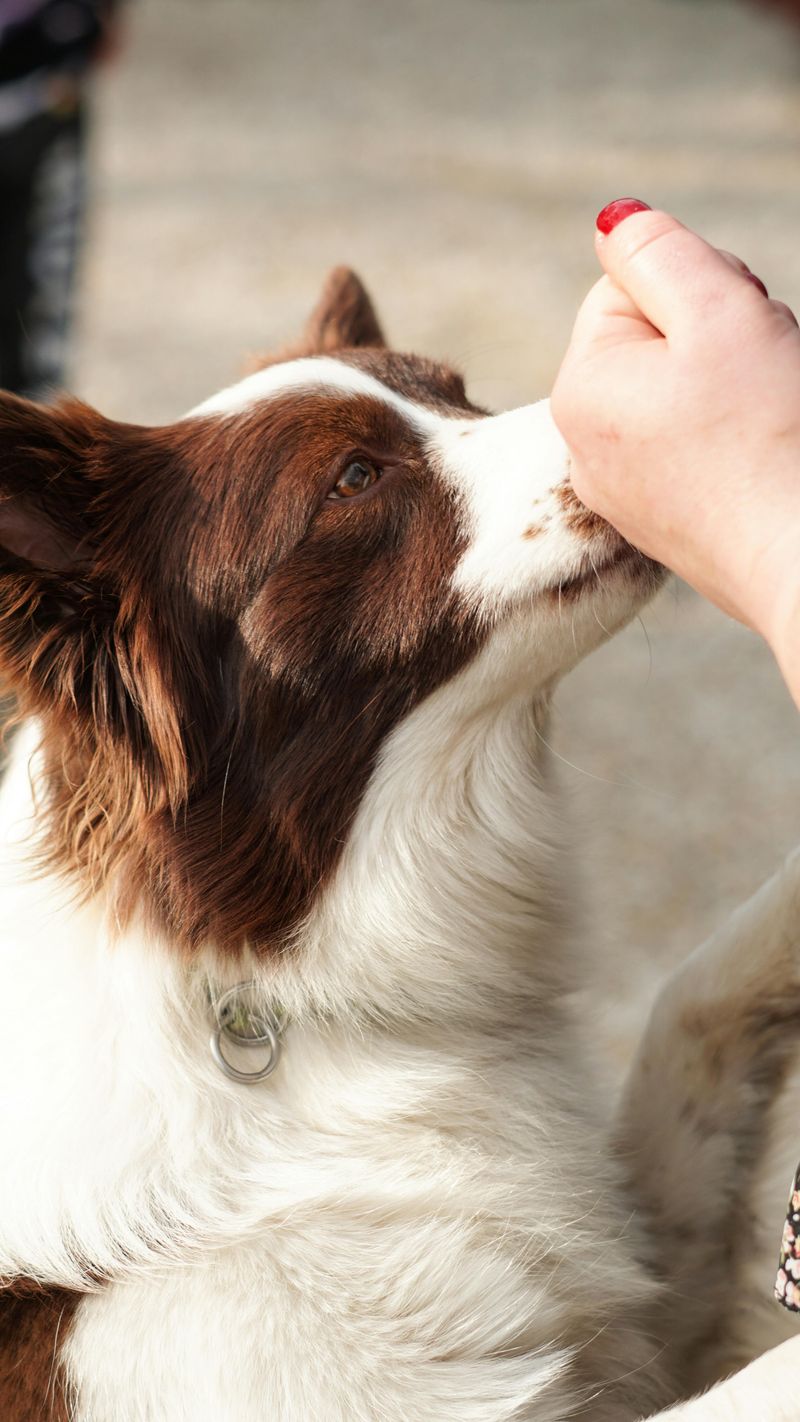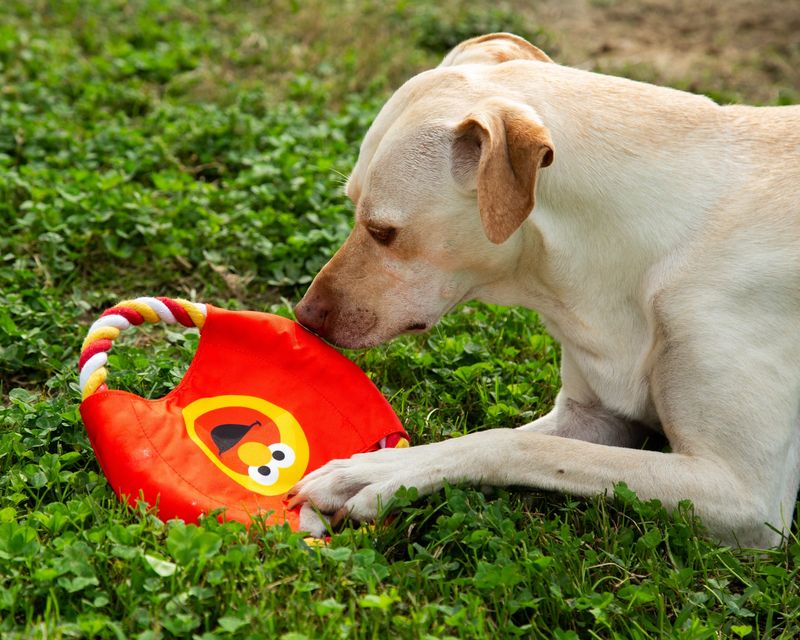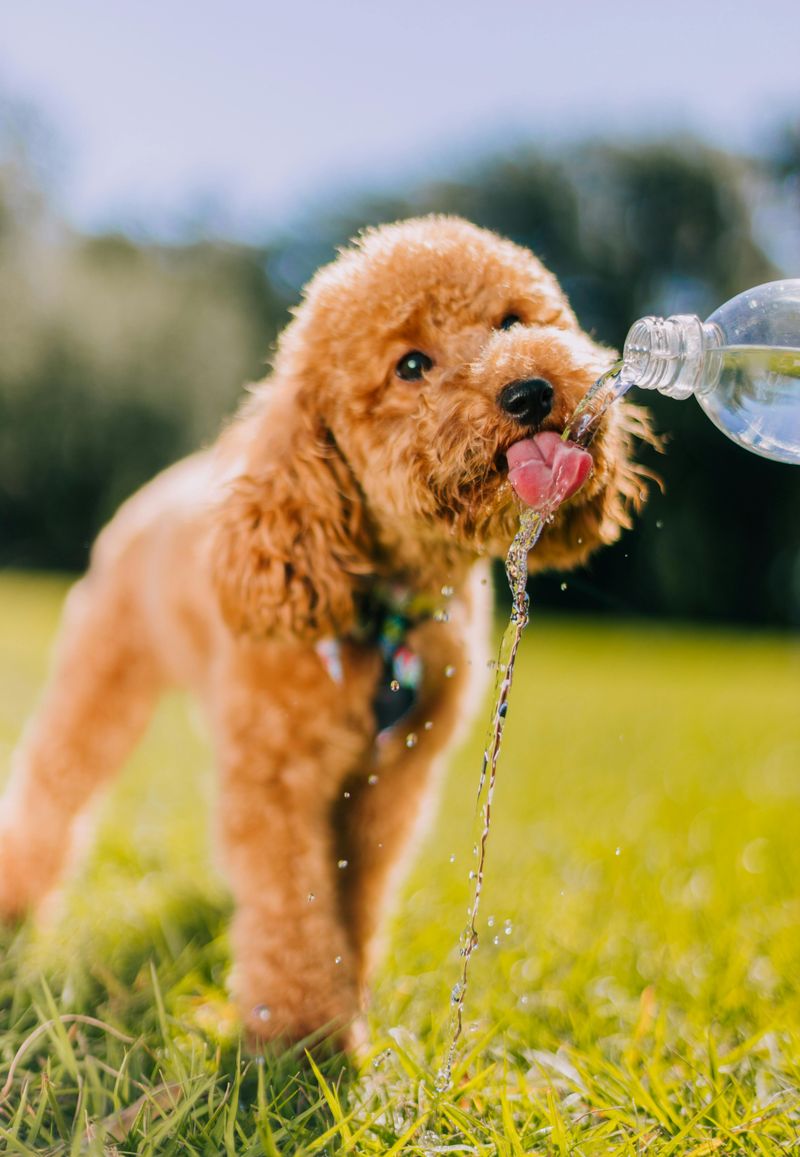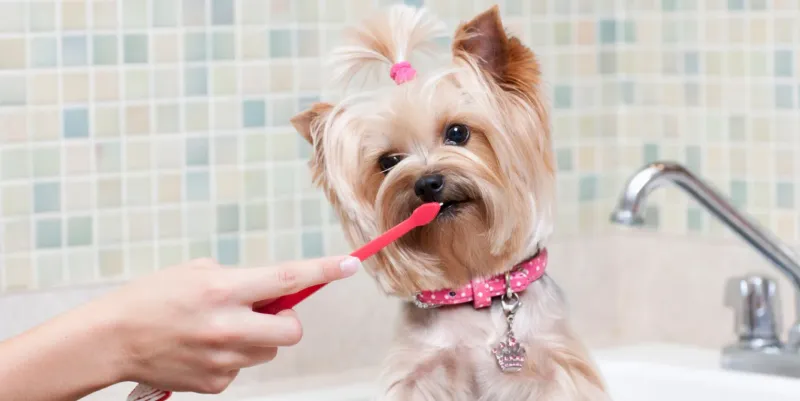Supporting your dog’s well-being and happiness is a rewarding journey. From physical health to emotional fulfillment, there are numerous ways to ensure your furry friend lives a joyful life. Here are 16 practical methods to enhance your dog’s well-being, each uniquely crafted to provide care and happiness for your beloved pet.
Daily Exercise
Dogs thrive on regular exercise, which keeps them physically fit and mentally stimulated. Whether it’s a brisk walk through the neighborhood or a game of fetch in the park, daily activity is essential. It enhances cardiovascular health, strengthens muscles, and improves mood. A tired dog is often a happy dog, as exercise can alleviate boredom and reduce behavioral issues.
Consider alternating activities to prevent monotony. Perhaps try swimming or agility training. Engaging in varied exercises will keep your dog excited and eager to move. Exercise is a foundation for a healthy, contented life, so make it a priority.
Balanced Diet
A balanced diet is crucial for your dog’s overall health. Providing high-quality food enriched with essential nutrients ensures a shiny coat, strong bones, and a robust immune system. It’s not just about kibble; incorporating fresh vegetables, lean meats, and grains can enhance the diet.
Monitor portion sizes to avoid obesity, and consult with a vet to tailor the diet to your dog’s specific needs. Remember, a well-fed dog is a happy dog. Paying attention to dietary needs can prevent health issues and promote longevity.
Regular Vet Visits
Routine vet visits are a cornerstone of preventative health care. Regular check-ups help in the early detection of potential health problems and ensure vaccinations are up to date. It’s an opportunity to discuss diet, behavior, and any concerns with your veterinarian.
Building a relationship with a trusted vet provides peace of mind, knowing your dog’s health is in professional hands. Prevention is always better than cure, and a proactive approach can contribute to a longer, healthier life.
Proper Grooming
Grooming is more than just aesthetics; it’s vital for health and comfort. Regular brushing prevents matting and helps distribute natural oils, keeping the coat healthy. It also provides an opportunity to check for parasites and skin abnormalities.
Bathing, nail trimming, and ear cleaning are essential grooming tasks. A clean dog is a happy dog, and regular grooming sessions can strengthen the bond between you and your pet. Make grooming a positive experience by incorporating treats and praise.
Socialization Opportunities
Socialization is key to a well-adjusted dog. Exposure to different environments, people, and other dogs builds confidence and reduces anxiety. A well-socialized dog is less likely to exhibit fear-based behaviors, such as aggression or excessive barking.
Introduce your dog to new experiences gradually, ensuring each interaction is positive. Dog parks, playdates, and training classes are excellent opportunities for social growth. Remember, socialization is a lifelong process that enriches your dog’s world.
Mental Stimulation
Mental stimulation is as important as physical exercise. Engaging your dog’s mind through puzzle toys, training sessions, and interactive games keeps them sharp and satisfied. It provides an outlet for natural instincts and prevents boredom-related misbehavior.
Challenge your dog with new tricks or scent games. Rotating toys and introducing new challenges will keep their interest alive. A mentally stimulated dog is a happier, more content companion.
Adequate Rest
Adequate rest is essential for a healthy, happy dog. Just like humans, dogs need quality sleep to rejuvenate. Providing a comfortable sleeping area that is quiet and secure promotes relaxation.
Observe your dog’s sleep patterns and ensure they have a routine. A well-rested dog is energetic and ready to take on the day. Remember, rest is a vital component of well-being, allowing for physical and mental recovery.
Training and Discipline
Training and discipline form the foundation of a harmonious relationship between you and your dog. Consistent training instills good manners and ensures safety. It enhances communication and builds trust.
Positive reinforcement, such as treats and praise, encourages desired behaviors. Discipline should be gentle and fair, fostering respect rather than fear. Training is a lifelong journey, strengthening the bond with your furry friend.
Safe Environment
Creating a safe environment is crucial for your dog’s well-being. Ensure your home and yard are free of hazards, such as toxic plants or chemicals. Secure fencing prevents escapes and unwanted encounters with wildlife.
Provide a space where your dog feels secure, with access to shade and fresh water. Safety measures contribute to peace of mind and a worry-free life for your pet. A safe environment allows your dog to explore and play with confidence.
Quality Time Together
Spending quality time with your dog strengthens your bond and enriches both lives. Whether it’s a leisurely walk, a car ride, or simply cuddling on the couch, these moments are precious.
Engage in activities that both you and your dog enjoy. Quality time fosters trust and understanding. It’s not just about the quantity but the quality of interactions that create lasting memories.
Consistent Routine
Dogs thrive on routine. Predictability provides a sense of security and reduces stress. Feeding, walks, playtime, and rest should follow a consistent schedule.
A structured routine helps in managing behaviors and expectations. It creates a balanced lifestyle, contributing to overall happiness. Observe your dog’s natural rhythms to fine-tune their daily routine.
Love and Affection
Nothing compares to the power of love and affection. Dogs are social creatures that crave attention and companionship. Offering love strengthens your emotional connection.
Physical touch, like petting and hugging, releases endorphins, creating a sense of well-being. Be attentive to their emotional needs. A loved dog is a happy dog, thriving in an environment filled with care and compassion.
Safe and Stimulating Toys
Toys are more than just entertainment; they provide mental stimulation and physical exercise. Choose safe, durable toys that match your dog’s size and play style.
Rotate toys to maintain interest and challenge your dog’s intellect. A well-chosen toy can provide hours of enjoyment and enrichment. Toys are an essential part of a happy, fulfilled life.
Proper Hydration
Proper hydration is vital for your dog’s health. Fresh, clean water should always be available, especially during hot weather or after exercise. Adequate hydration supports digestion, circulation, and body temperature regulation.
Monitor your dog’s water intake and consult a vet if you notice any changes. A hydrated dog is energetic and healthy, ready to enjoy life’s adventures.
Regular Dental Care
Dental care is crucial for your dog’s overall health. Regular brushing and dental check-ups prevent plaque buildup and gum disease. Healthy teeth contribute to a healthy body.
Introduce dental care gradually, using dog-friendly toothpaste. Dental toys and treats can also aid in maintaining oral hygiene. A clean mouth leads to fresh breath and a happy smile.
Positive Reinforcement
Positive reinforcement is a powerful tool in training and behavior shaping. Rewarding desired behaviors with treats, praise, or play encourages repetition and builds confidence.
It fosters a positive learning environment and strengthens the bond between you and your dog. Avoid harsh punishments; focus on encouragement and support instead. Positive reinforcement creates a happy, obedient companion.

